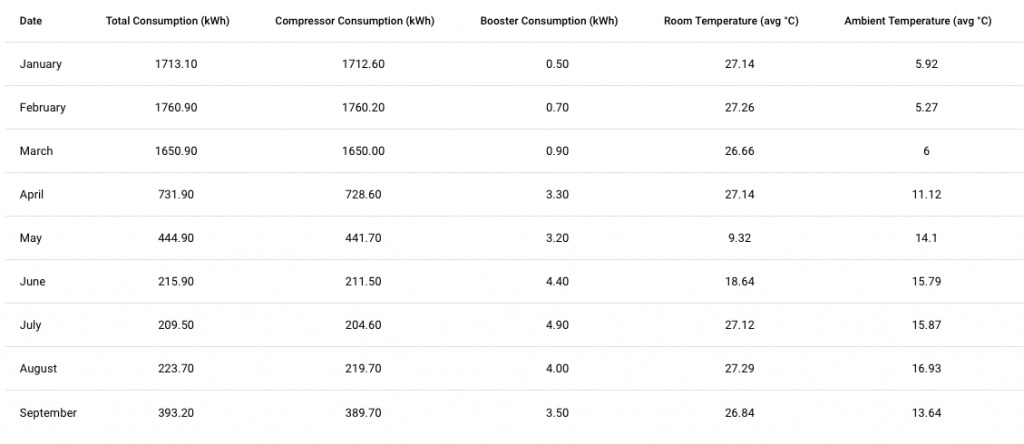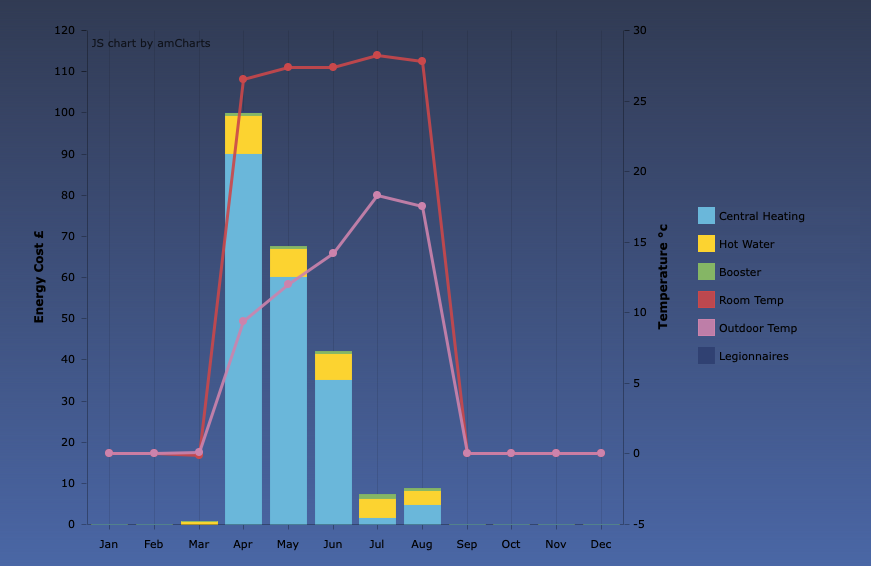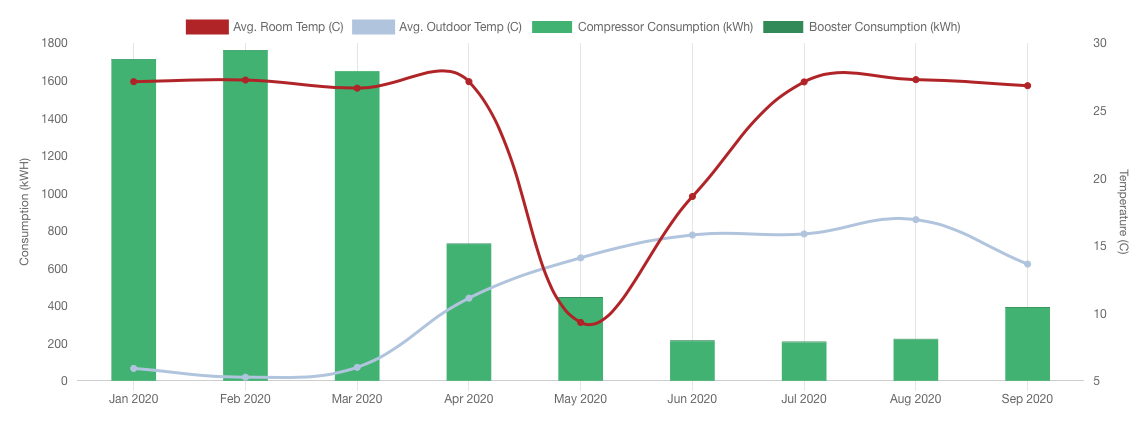We have received several questions lately about our air source heat pump consumption over summer so we pulled the data to answer this question.
From May 1, 2020, to September 1, 2020 (four months) our air source heat pump generated 2,881kW of heat using 1,084kWh of power. These figures are based on readings generated by metres that we use to get RHI payments.
We get additional data from Global Energy Systems (the manufacturers of our pump), but they have removed the breakdown for hot water demand and central heating on their new portal, so we can’t be more specific on this subject.
The data in the table below is taken from the Global Energy Systems portal and shows total consumption for the year to date, giving an indication of how often the booster (oil boiler in our case) kicked in. Over summer this typically occurs to get flow rate up when the pump has been dormant for prolonged periods of time; over winter, when the pump is running 24/7, this usually occurs to defrost and de-ice the pump.

You can ignore the room temperature column above as that takes readings in our utility room and provides no useful insights. I also have no clue as to why the recorded average temperature in May was registered at 9C because our utility room is always extremely warm. Odd, but not relevant.
The ambient temperature column, however, is interesting as that provides the mean outdoor temperature for that month. You can see that September is a lot cooler than August (about 3C cooler) and the ASHP consumption is nearly double.
Using the data provided above, it’s now simple to apply your kWh electricity tariff from your provider to work out how much the heating would cost to run.
Apart from May, it’s been a cloudy, rainy summer with above average ambient outdoor temperatures for our area. Having said that, there were times over August and September where nighttime temperatures were cold and the heating did kick in, and that’s reflected in the table above.
What may also be useful to note is that we typically have our showers in the morning, so on sunny, light days our hot water is heated using electricity produced by our solar panel array, and over summer and autumn months the solar system goes a long way to driving the electricity demand for the air source heat pump during daylight hours.
We heat our water to 42C using the ASHP, but it does heat to 60C using surplus solar production from our iBoost that we had installed. Our central heating flow temperature is set to 45C.
In closing, even though we no longer have the data split from Global Energy Systems for heating and hot water, I was able to find a graph from last year’s data (taken from their old portal) which shows that over summer (July and August) the bulk of the ASHP’s activity is centered around generating hot water.

We hope that this gives you some insights into our air source heat pump consumption over summer. Feedback and questions welcome. Please leave comments below.
